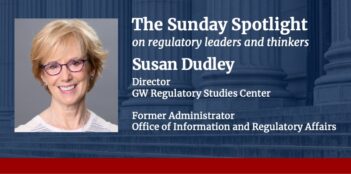
Executive order makes open and accessible data a default government policy.
President Obama has ordered federal agencies to make their data “open and machine readable,” excluding only information likely to implicate privacy, national security, and law enforcement concerns. In accordance with the order, Sylvia Burwell, the director of the Office of Management and Budget (OMB), issued a memo outlining the details of the federal government’s new “Open Data Policy.”
The administration’s primary goal is to promote government transparency and boost the economy. By providing researchers and entrepreneurs with previously unavailable government data, the federal government hopes to promote the development of new products and services, creating jobs in the process. The administration has identified the past releases global positioning system and weather information, among others, as success stories from open data that it seeks to emulate.
Specifically, the new policy requires each federal agency to feature publicly available data on its website, available under a URL of www.[agency].gov/data. Data must be published in multiple formats, and the policy indicates a preference for open source formats that do not require a fee to access. Each agency must include a description of each piece of information available, including common core metadata, to help members of the public properly assess its value. For example, each agency should provide metadata that includes “information about origin, linked data, geographic location, time series continuations,” and “data quality” to help end users evaluate the provided information.
Furthermore, agencies are ordered to make information readily available through the use of open licenses where possible.
To support its new initiative, the government has launched a central website–Project Open Data— to serve as a central forum for agencies to discuss best practices and help each other implement the new policy.
The Open Data Policy also addresses potential breaches of security as well. It confirms that agencies must still comply with a number of federal laws, regulations, and guidance documents on security issues, including protocols for classifying information as secret.
Addressing privacy concerns, the new policy reiterates that agencies are only allowed to collect information that is necessary for performing agency functions and has “practical utility,” and that agencies should “limit the sharing of information that identifies individuals or contains proprietary information.”
Burwell’s memo also highlights the “mosaic effect” as an area of concern for agencies. The mosaic effect occurs when a researcher is able to glean personal or confidential information from bits and pieces of multiple documents or data sets that would not be apparent from an inspection of merely one piece of the collection. The Open Data Policy calls for each agency to analyze the probability that such a leak will occur before releasing information to the public.
Some observers have compared the administration’s new policy to approaches other countries have adopted, concluding that the Open Data Policy would make the United States one of the global leaders in government information indexing, alongside the United Kingdom and the Government of Wales. In addition, the new federal policy may better align the U.S. government with several municipalities in the United States that have initiated indexing systems of their own.



